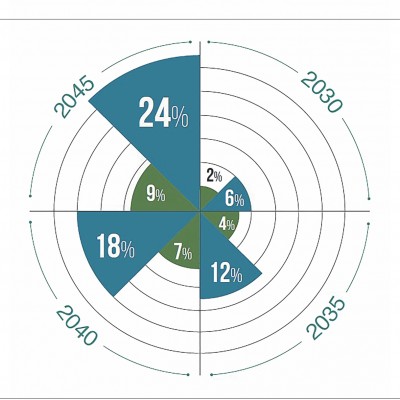A report of fisheries ministry and WB finds
Bangladesh’s agriculture sector is under threat from climate change, as the sea level rise may reduce availability of cropland by 24 percent in coastal divisions across growing seasons by 2045, a new report said yesterday.
“With two-thirds of the country at an elevation of less than 5 metres, Bangladesh is highly exposed to rising sea-levels, particularly the southern region. Rising sea-levels and salinisation are already being felt across coastal areas,” according to the Climate Smart Agriculture Investment Plan (CSAIP) Bangladesh.
The report, jointly prepared by the fisheries and livestock ministry and the World Bank, was launched at an event at the Krishibid Institution Bangladesh in Dhaka.
The CSAIP has been prepared to address the impacts of climate change on agriculture and prioritise investments to improve productivity, resilience and mitigation in the agriculture sector.
At the event, a $500 million Livestock and Dairy Development Project (LDDP) was rolled out to improve livestock and dairy production as well as to ensure better market access for two million farmers and small and medium-scale entrepreneurs.
 The WB said the LDDP is the largest livestock development project in its portfolio and the project would help stimulate private sector investment and the development of livestock value chains in Bangladesh.
The WB said the LDDP is the largest livestock development project in its portfolio and the project would help stimulate private sector investment and the development of livestock value chains in Bangladesh.
According to the CSAIP, soil salinity has affected 62 percent of coastal land and salinity intrusion is predicted to advance 8kms north by 2030, reducing land availability for farming.
Apart from this, rising temperature will negatively impact yields of two main crops — aman and boro rice — and high water stress can lead to rice yield losses as high as 70 percent, the report said.
Bangladesh’s agricultural productivity growth has been among the highest in the world and supported around 87 percent of the country’s rural households.
“Climate change and sea-level rise pose a serious threat to Bangladesh’s impressive growth in agricultural productivity,” the WB said.
It said the agriculture sector is projected to stagnate under the business as usual scenario, and key national production targets by 2040 are likely to be missed unless action is taken.
“Due to sea-level rise and population growth, self-sufficiency targets for 2040 can be met only for rice and tubers,” the report said, adding that greenhouse gas emissions were expected to rise by 2 percent between 2015 and 2040.
In addition, water consumption will increase by 0.8-1.7 million litres per year exacerbating water scarcity, which in some areas will become even worse under climate change.
The report said production of non-rice crops will fall short of government targets by 56 percent under the business as usual scenario.
“In short, Bangladesh is on a slow burning platform,” said John Roome, WB’s South Asia Regional Director for Sustainable Development.
He said things need to change and there is a need to do things differently. “This is where the Climate Smart Agriculture Investment Plan can help.”
The CSAIP said Climate Smart Agriculture (CSA), which focuses on increasing productivity, strengthening resilience and reducing emissions, offers technologies that have the potential to set the sector on a resilient growth path that would dramatically close gaps towards 2040 and diversify production and value creation.
“CSA will allow Bangladesh to maintain rice self-sufficiency and greatly increase non-rice crop production,” said the report, adding CSA will help Bangladesh expand livestock and fish production as well as make agriculture less vulnerable to climate change.
Under the $809 million investment plan to tackle the impacts of climate change, five areas have been identified for investment: agricultural innovation, gender-sensitive development of homestead production, diversification, improving production, and value chain of milk and meat.
At the event, Agriculture Minister Muhammad Abdur Razzaque said the country clocked in 8.15 percent GDP growth in the last fiscal year. “We want to sustain it.”
He said the living standard of people still remains ‘awfully low’ despite peoples’ resilience and endeavour for better living.
“We have to acquire resilience with high standard of living.” Ashraf Ali Khan Khasru, state minister for fisheries and livestock, said winters were felt in December in the past. Now it is not being felt that much. “It appears that negative impacts of climate change have started falling in our region,” he said.
Dandan Chen, acting country director of the WB for Bangladesh and Bhutan, said being among the most vulnerable countries to climate change, Bangladesh must take urgent actions to build on its impressive track record in the agriculture sector.
“We are encouraged to see that the government considers climate-smart agriculture a strategic priority investment in response to changing climate.”
She said Bangladesh is one of the two pilot countries that took part in CSAIPs. The investment plan will help integrate climate change in the agriculture policy agenda. Fisheries and Livestock Secretary Raisul Alam Mondal also spoke.
-With The Daily Star input




















